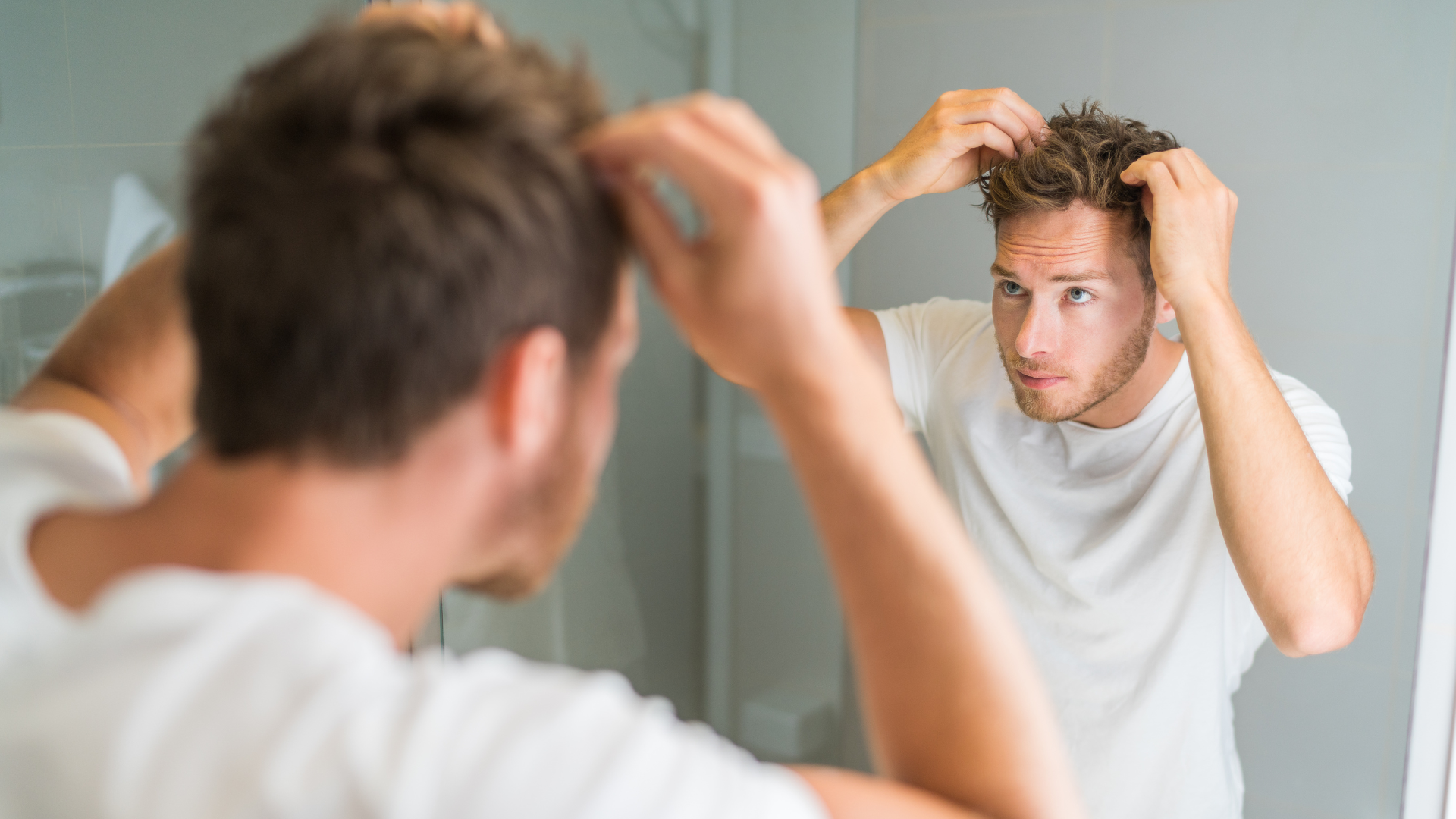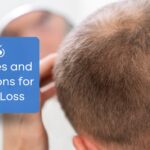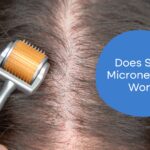Does Radiation Treatment Make You Lose Your Hair? Key Facts Explained

Radiation therapy is one of the most prevalent forms of cancer treatment, where highly concentrated doses of radiation are used to kill cancer cells. Radiation therapies, as with any cancer therapy, can have a multitude of temporary side effects, such as hair loss, that can distress patients.
Cancer patients must understand the effects of radiation therapy on hair loss. Side effects like hair loss can be minimised by individualising radiation therapy treatment. It is important to discuss hair loss issues with your doctor and healthcare team before initiating radiation therapy.
Here we shall discuss why hair loss happens from radiation therapy and how we may lessen it through different methods. We will then explain how Hairy Hair may help with your hair loss.
Understanding hair loss from radiation therapy
Hair loss is yet another common side effect of radiation therapy, particularly when given near the head or the neck. It causes loss of hair as a result of damage to the hair follicles, leading to baldness or thinning hair.
The International Journal of Trichology determined that the loss of hair will tend to take place in rectangular patches and not cause swelling of the skin underneath.
How much hair will be lost will vary with how much radiation is used and the location being treated. Although this will be uncomfortable for patients, if you do lose hair, it is usually temporary, and after radiation therapy is complete, hair will once more regrow.
Some steps that patients can follow to keep their hair healthy during the regrowth period are to use a mild shampoo and avoid using hair dryers and heat appliances.
What are the side effects of radiation therapy?
The side effects of radiation therapy may be unpredictable based on the treatment site and the radiation dose delivered. They can involve fatigue, skin reactions, and changes in the treatment site.
Dry mouth, taste changes, and sore skin are also due to radiation therapy. If you experience any effects during the initial few weeks, you must report them to your care team, who can provide tips on coping with them.
The side effects are manageable with medicine, lifestyle adjustments, and comfort care. Radiation therapy-induced hair loss is distressing for patients, but there are some things that you can do in an attempt to cope with it, such as wearing a wig or a headpiece.
Can you reverse or slow down the hair loss due to radiation therapy?
Scalp cooling or cold caps can even stop hair loss due to cancer treatment. It is achieved by wearing a hat on your head that has a cold gel or liquid coolant inside. Cooling the scalp during treatment shuts off blood flow to the scalp.
This means radiation therapy will find it harder to penetrate through the cells. Since your hair follicles are better cushioned from treatment, there are fewer chances they’ll be affected.
Scalp cooling caps may produce side effects in the form of headaches, scalp pain, or the lingering feeling of coldness. How well the scalp cooling cap performs would rely on what chemotherapy is applied, among other things.
Does hair grow back after radiation therapy?
Most individuals’ hair will regrow by itself after radiation therapy, but it can vary from person to person. Some will see soft fuzz a few weeks after treatment, when you have time off between treatments.
Most individuals will begin to notice some hair regrowth after 3-4 weeks after treatment ends. Then, 4-6 weeks afterwards, you ought to notice more noticeable hair regrowth, according to the National Cancer Institute. It may take a year for the first 6 inches of hair to grow back.
New hair growth can come in a different color or texture. It is likely that people who have straight hair will be able to see it re-grow wavy or curly. Everyone’s hair growth looks distinct, so have some patience.
Encouraging hair regrowth
There are some things you can do to promote hair regrowth at this stage. Natural extracts and essential oils like coconut oil, rosemary, aloe vera, and tea tree oil can stimulate blood flow to the scalp and keep it moisturised to stimulate regrowth. You need to be careful with the delicate regrowth, so when you shampoo, you need to dry your hair carefully with a soft towel.
A scalp massage can also enhance blood flow and stimulate hair growth. This practice can reduce stress, which can inhibit hair growth. Supplements can also promote the health and growth of hair follicles at this time.
How can Hairy Hair help with my hair loss?
Radiation treatment is only one possible cause of hair loss. Similar to hair loss due to stress, radiation hair loss is most often temporary, and hair will grow back on its own. Other types of hair loss are more chronic in nature, and something must be done to prevent the shedding.
If the reason for your hair loss is a typical reason like aging or genetic pattern baldness, it might be unavoidable. Thus, Hairy Hair has developed an integrated hair loss treatment that incorporates various ingredients to treat various causes of hair loss.
The supplement is a dihydrotestosterone blocker. This hormone shrinks hair follicles, leading to hair loss. The supplement is also a vasodilator that opens up the blood vessels on the scalp so hair follicles receive more oxygen and nutrients.
The treatment is finished with natural ingredients to trigger keratin production, the protein that lies at the centre of hair, and as an anti-inflammatory to trigger a healthy scalp. This multi-purpose treatment for hair loss may give you a better chance to stop hair loss and promote hair growth than using one treatment alone.
Radiation therapy and other causes of hair loss
Hair loss is a common side effect of radiation therapy, but it differs from chemotherapy since hair loss will only occur in the area that received the treatment. Thus, radiation therapy for a brain tumour or neck tumour will likely cause hair loss.
Hair will most likely fall out following treatment for 2-3 weeks. This will be a reversible form of hair loss, and when your hair grows back once treatment is completed, your hair can be a different colour or texture. If you have a high level of radiotherapy, permanent hair loss is more probable, so you will need to discuss this with your care team initially to enquire if this risk can be minimised.
Hair loss through radiation is only one cause of shedding. If you are worried about your hair loss, please contact Hairy Hair today. Fill in a quick online questionnaire to get started so we can learn more about you and your hair loss.
From there, our professional team will craft a personalised treatment plan, and an experienced Australian GP will call you to go over your prescription and answer any questions you may have. Finally, your supplement will be shipped directly to your doorstep.


